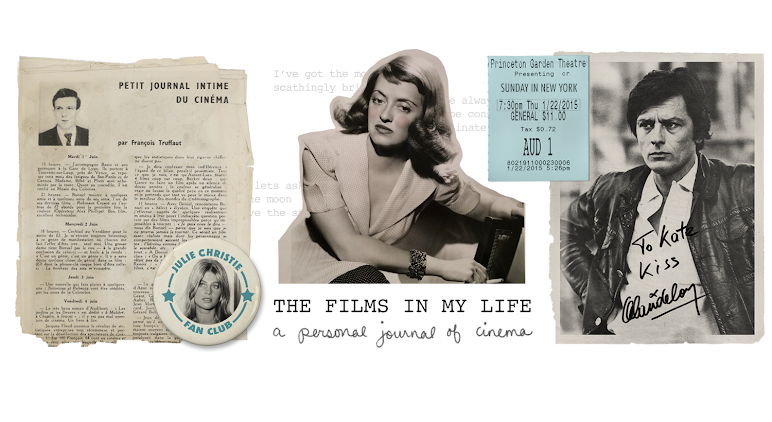Veronica Lake co-starred in one of my all-time favorite movies. It's not just any movie, it is seriously in my top five, has been there for years, and it will take something very, very extraordinary to knock it off of its throne.
The movie is Sullivan's Travels. I love it for a gazillion different reasons, but the one that I tend to blabber about the most whenever anyone asks me, is that this movie proves why movies are important. I wrote a paper about Sullivan's Travels and why it is so important for my entrance essay when I applied to the New School for film/media studies. It's not exceptionally long, but I hope you will take a look at the essay. If you've seen the movie, I hope it will give you a new perspective, and if you haven't seen it, I hope it will encourage you to!
---
I’ve always had a soft spot reserved in my heart for depression-era message yarns. You know the movies- the ones with bread lines, chain gangs and a not-so subtle message about the fragile state of the nation in 1930’s America. I have, and always will, consider them to be admirable pictures that depicted a stark, realistic picture of an America on the brink.
When I first sat down to watch “Sullivan’s Travels” I thought it would be one of those pictures. The movie begins in Hollywood, where director John L. Sullivan, famous for his light comedies and annual musical extravaganzas, decides to embark on a more important movie about human anguish. “Oh, Brother Where Art Thou” will be his ultimate masterpiece. He hatches a plan to go undercover as a hobo to learn firsthand what it’s like to suffer. This decision sets him on a journey where he ultimately learns that sometimes all a person has is a light comedy or a musical extravaganza, or Mickey Mouse.
There are so many, many things about this movie that touched me, and changed my perception of movies and their importance in American life. Director Preston Sturges was known for his comedies, and this picture was advertised as such. But behind the comedic mask, this film also teaches us about oppression and poverty. Throughout the film, Sullivan encounters homeless families, desperation, starvation and hopelessness. Towards the end of the movie, after an unfortunate series of events, Sullivan finds himself in a southern prison camp, holed up most of the week in a sweat box. His only comfort is the one night when the prisoners are led to an African American church, where the prisoners join the congregation in watching cartoons and comedies. Sturges’ brilliant, subtle juxtaposition of the long-oppressed African Americans welcoming fellow oppressed peoples into their place of worship is one of the most powerful moments in the movie.
I’ve always enjoyed comedies, but until seeing this movie I never realized their importantance. Ever since the first moving picture made its way onto the big screen, different audiences have sought different things from the movie-watching experience. Yes, many people wanted to see a realistic depiction of life, in all its gloom and sorrow. But perhaps most importantly, many people have sought refuge from normal life by going to the movies. During the depression, audiences flocked to see frivolous movies, cartoons and adventure pictures. That these films held the power to cheer up a disheartened and depressed public is reason enough to consider them some of the most important films ever made.
For years I’ve often thought that if I had to narrow down my thousands-long list of favorite movies to only four or five, Sullivan’s Travels would always top my list. It isn’t just that it’s a great film, it is an important film. In this one motion picture, a moviegoer will learn about poverty, the brutal southern prison system in the early 20th century, the oppression of African Americans, and, of course, the importance of comedy.



















7 comments:
You are truly gifted!
Not only did I love that drawing of Veronica, but your essay was fascinating. Absolutely amazing!
Great essay! I've been using old Leave it to Beaver reruns to escape all the upheaval of today, you're right, sometimes you do have to get away from the "reality" we are constantly bombarded with by the media.
Thanks Millie, you are too sweet.
Vivienne- Thanks! I completely agree with you... when I wrote that essay I didn't realize that the whole "depression era movie viewing habits" would suddenly become very, very relevant. By the way-- are you STILL stuck on Leave it to Beaver? How many seasons were there anyway? :)
I love your art work!! Hey so you watch silent movies? I do too, but have only seen a couple of ones with clara bow and one with louise brooks! Maybe you could recommend me some? feel free to comment on my blog! tHANKS!
That is a great essay. What I have always admired most about Sullivan's Travels is that Preston Sturges pulled off a difficult feat with that movie. He made a message film that was not a message film! Sullivan's Travels is a comedy, but it also does a very good job of presenting human suffering at the time!
Oh Kate, this is one of my favorites too. It really is a wonderfully moving and hilarious film all at once. Your essay is really great as well as your drawing of Veronica.
Sullivan's Travels is my favorite movie, I wrote an essay about it, and yours is a wonderful expression of all that is good and true in Sturges's masterpiece.
Post a Comment